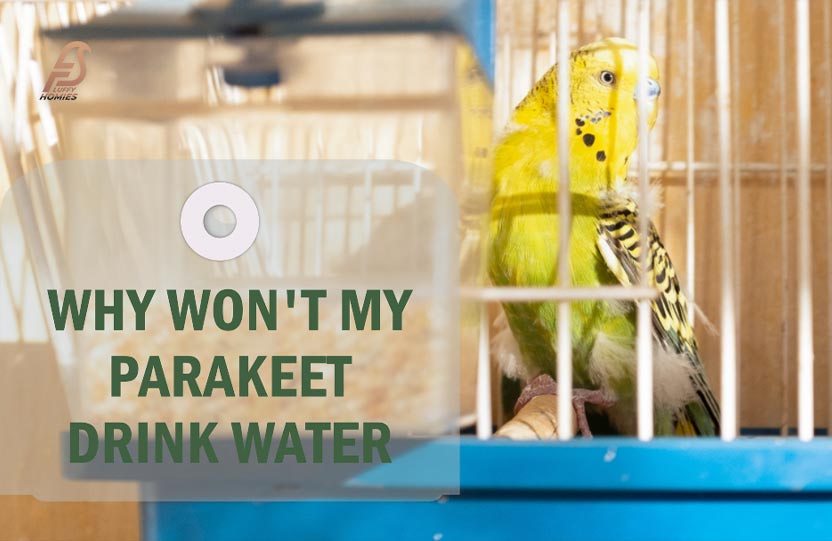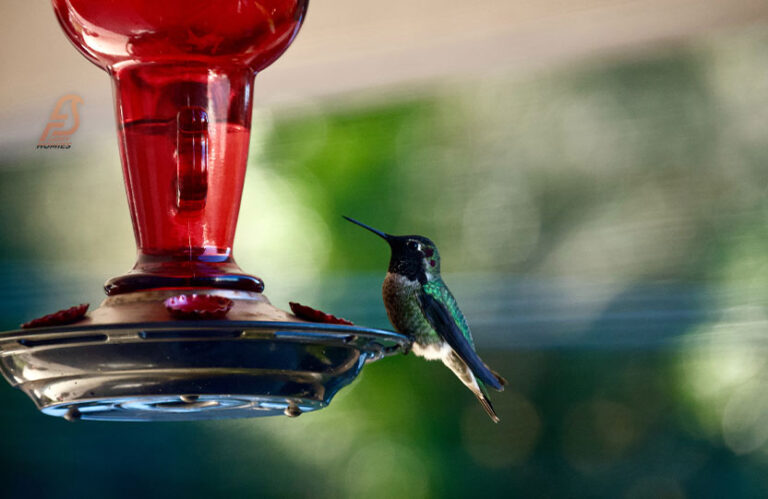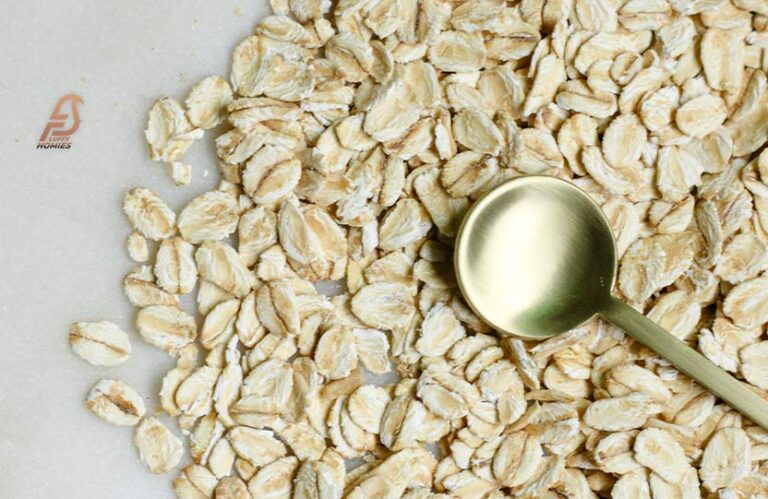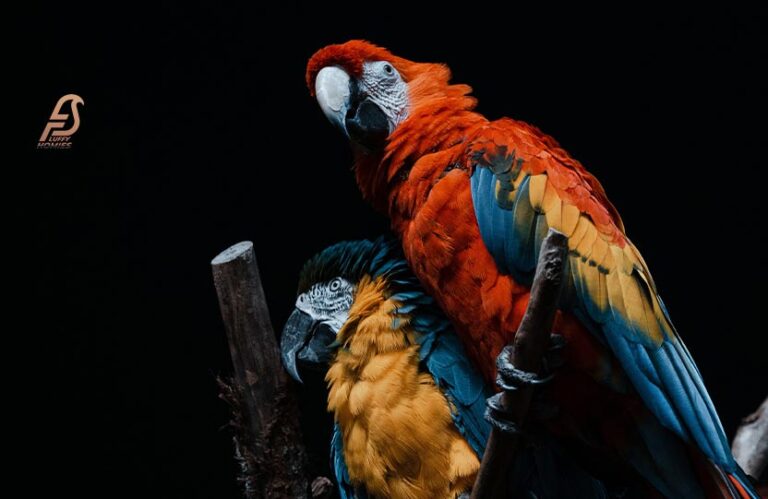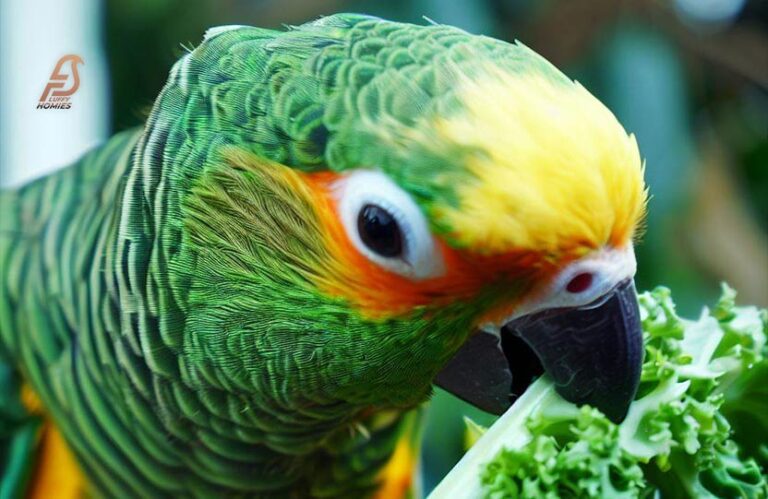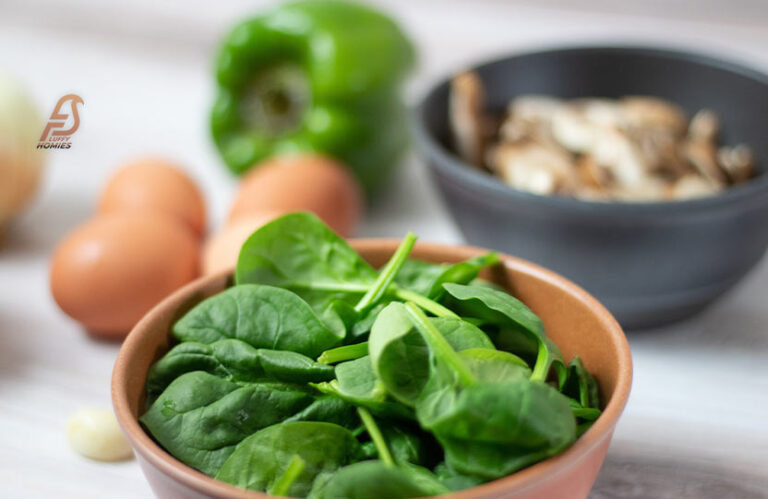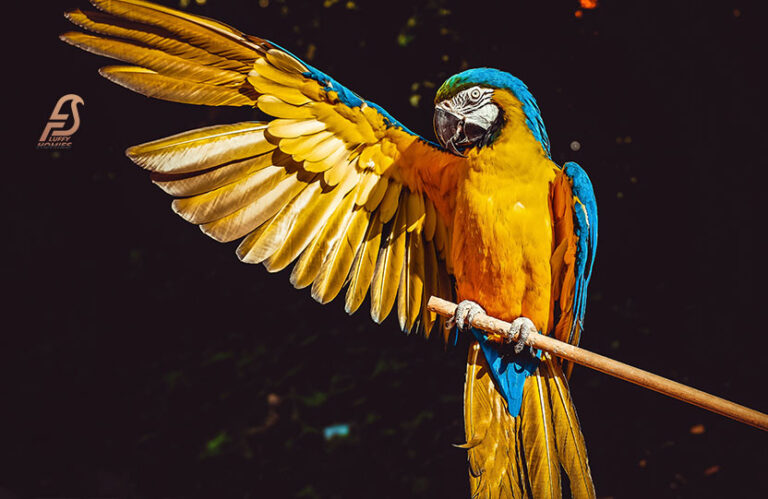Parakeet Health Alert: Why Won’t My Parakeet Drink Water?
Water is vital for the overall well-being of parakeets. It plays a crucial role in various bodily functions, such as digestion, temperature regulation, and organ function.
There are some types of hidden languages of budgies that humans don’t know like budgies adjusting their crops for some reasons but owners don’t know why they do this.
As responsible parakeet owners, it is crucial to ensure that our feathered friends have access to fresh water at all times.
However, there may be instances when you notice that your parakeet is not drinking water as expected.
In this article, we will explore the possible reasons behind this behavior and provide insights on how to encourage your parakeet to drink water.
We will also address common concerns and questions related to parakeet hydration.
Why Won’t My Parakeet Drink Water?
Parakeets can’t understand human language and humans can’t understand their language.
So, there are some types of movements that help to understand your feathered friends situations. Sometimes budgies starve themselves and you don’t have any idea.
Environmental Factors
Parakeets are highly sensitive creatures, and changes in their surroundings can affect their behavior, including their water consumption.
If you have recently moved your parakeet to a new cage or changed its location within your home, it might be feeling stressed or uncertain in its new environment. This stress can impact appetite and water intake.
Ensure that the cage is placed in a quiet area away from direct sunlight, drafts, and any potential sources of stress, such as loud noises or frequent disturbances.
Creating a calm and comfortable environment for your parakeet can help alleviate its stress and encourage it to drink water.
Water Quality
Water quality plays a crucial role in encouraging your parakeet to drink. Parakeets, like other birds, have a highly developed sense of taste, and they can be picky about the water they consume.
If the water you provide has an unpleasant taste or odor, your parakeet may be reluctant to drink it. If he drink it then it will be the cause of budgies sudden death.
Ensure that the water you offer is fresh, clean, and free from contaminants. Change the water in the dish daily to maintain its freshness.
If your tap water is heavily chlorinated or has a strong taste, consider using filtered or bottled water as an alternative. However, most tap water is safe for parakeets as long as it is free from harmful chemicals or additives.
Food Moisture Content
Parakeets derive a significant portion of their hydration from the food they consume. If your parakeet’s diet mainly consists of dry seeds, it may not feel the need to drink water as frequently.
Dry seeds contain very little moisture, and parakeets can meet their hydration needs by extracting moisture from these seeds.
To encourage your parakeet to drink water, consider incorporating fresh fruits and vegetables with high moisture content into its diet.
These can provide additional hydration and contribute to its overall water intake. Offer a variety of fruits and vegetables, such as mangos for budgies and more, to entice your parakeet’s interest and keep it properly hydrated.
Lack of Awareness
Sometimes, parakeets may simply not be aware that water is available to them.
They may not recognize the water source or realize that it is intended for drinking. This lack of awareness can contribute to their reluctance to drink water.
Make sure that the water source is easily visible and accessible to your parakeet. Place a shallow dish or water dispenser in a prominent location within the cage.
The water dish should be easily recognizable as a source of hydration for your parakeet.
Additionally, you can gently demonstrate the act of drinking water by using your finger to touch the water and then touching your parakeet’s beak, encouraging it to follow suit.
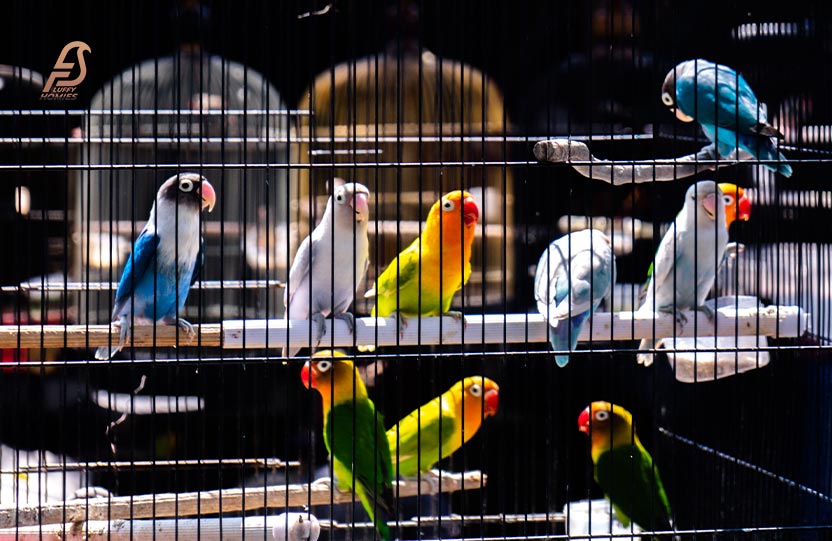
Illness or Health Concerns
Parakeets may exhibit changes in their water-drinking habits due to underlying health issues. Illnesses or infections can affect their appetite and thirst.
If you notice a significant decrease in water intake accompanied by other signs of illness, it is crucial to consult an avian veterinarian.
They can provide a professional evaluation and determine if there are any underlying health issues affecting your bird’s water intake.
Also Read: Is My Budgie Molting or Sick?
How Often Do Parakeets Drink Water?
Parakeets have varying water consumption habits, and it’s important to understand their hydration needs. According to the search results, parakeets generally drink water at least once a day.
Although some budgies may be shy and not drink water when their owners are present, they still require water for proper hydration.
It is recommended to provide fresh water to your parakeet every day, even if they can go for days without drinking.
The frequency of water intake for parakeets is approximately 2-3 times a day or about 5% of their body weight.
Ensuring that your parakeet has access to water throughout the day is crucial to keep them hydrated and happy.
You can achieve this by providing a suitable water container or bottle that is easily accessible within their cage or aviary.
It’s worth noting that individual parakeets may have slightly different water consumption patterns, and it’s important to monitor their behavior and adjust accordingly. You also have an idea that how often do budgies poop for checking their health.
If you have concerns about your parakeet’s water intake or notice any signs of dehydration, it is advisable to consult with an avian veterinarian for expert guidance and to rule out any underlying health issues.
Can I Force My Parakeet to Drink Water?
While it is natural to be concerned about your parakeet’s hydration that makes parakeets destructive, it is important to understand that forcing your parakeet to drink water is not advisable.
Parakeets, like all animals, have their instincts and preferences when it comes to drinking and emotions that makes budgies to cry.
Forcing your parakeet to drink water can lead to stress and potentially harm your bird. It is crucial to respect their natural behavior and provide a comfortable environment that encourages them to drink on their own.
Instead of forcing your parakeet to drink water, focus on creating an environment that promotes hydration.
Ensure that clean and fresh water is readily available at all times in a suitable container. This can be a small bowl or a specialized water bottle designed for birds.
Also Read: Where Do Budgies Love to Be Touched?
Is Bottled Water Good for Parakeets?
When it comes to providing water for your parakeet, tap water is generally considered safe and suitable for their hydration needs.
However, there may be instances where you prefer or consider using bottled water. Here are some important points to consider regarding the use of bottled water for parakeets:
Water Quality
The quality of water is essential for your parakeet’s health. Tap water from a reliable source is often treated and regulated to meet certain safety standards.
It typically contains essential minerals that are beneficial for your bird. However, if your tap water quality is a concern, such as containing excessive chlorine or other chemicals, you may consider using bottled water as an alternative.
Bottled Water Selection
If you choose to provide bottled water to your parakeet, it is important to select a brand that is suitable for avian consumption.
Look for bottled water that is labeled as “purified” or “distilled.” These types of bottled water have gone through a filtration process to remove impurities, minerals, and additives.
Avoid using flavored or carbonated water, as it may contain additives that are not suitable for parakeets.
Consistency and Familiarity
Parakeets thrive on routine and familiarity. If you decide to switch from tap water to bottled water, do so gradually.
Start by mixing small amounts of bottled water with regular tap water, gradually increasing the proportion of bottled water over time. This helps your parakeet adjust to the new taste and ensures a smooth transition.
Monitoring Water Quality
Regardless of the water source, it is crucial to monitor the quality and cleanliness of the water provided to your parakeet. Regularly clean the water container or bottle, and replace the water daily to prevent bacterial growth and contamination.
Considerations for Travel
Bottled water can be convenient when traveling with your parakeet. It provides a consistent and reliable water source when tap water quality may be uncertain.
Just ensure you have sufficient bottled water available to meet your parakeet’s hydration needs during the journey.
Also Read: Why Does My Budgie Have Cold Feet?
How to Tell If Your Parakeet Is Drinking Water?
Monitoring your parakeet’s water intake is essential to ensure they are staying properly hydrated.
While it may not be possible to track every sip they take, there are several indicators you can observe to determine if your parakeet is drinking enough water.
Here are some ways to tell if your parakeet is drinking water:
Water Level in the Container
Regularly check the water level in the container. A noticeable decrease in water level indicates that your parakeet is consuming water.
If you notice a significant drop in water level within a short period, it is a positive sign that your parakeet is drinking.
Wetness Around the Beak
After drinking, parakeets may have a small amount of water around their beak or even wet feathers around their face. If you notice wetness or moisture in these areas, it indicates recent water consumption.
Water Splashes
Parakeets can be playful when drinking water, and you may observe small splashes around the water container or nearby areas. These water splashes are a good indication that your parakeet is actively drinking.
Behavior and Activity Levels
Hydrated parakeets tend to exhibit normal levels of energy and engage in their usual activities. If your parakeet appears active, and playful and maintains regular eating habits, they are likely drinking water adequately.
When they fulfilling their food requirements then birds love to stand on their owners shoulder for showing their love for you.
Droppings
Monitor your parakeet’s droppings for signs of hydration. Healthy droppings should have a combination of solid and liquid components. If the droppings appear excessively dry or concentrated, it may suggest inadequate water intake.
How to Encourage Your Parakeet to Drink Water?
Encouraging your parakeet to drink water is essential for their overall health and well-being. Here are some effective strategies to promote hydration in your feathered friend:
Provide Multiple Water Sources
Offer your parakeet a variety of water sources, such as a small bowl and a specialized water bottle.
Some parakeets may have a preference for one over the other, so providing options allows them to choose their preferred method of drinking.
Ensure Fresh and Clean Water
Replace the water in the container daily to ensure it is fresh and clean. Parakeets are more likely to drink water that is free from contaminants or debris. Rinse the container thoroughly to remove any residue before refilling it.
Consider Water Placement
Pay attention to where you place the water source. Parakeets feel more secure drinking water in a quiet and undisturbed area. Find a spot away from their perch or food, where they can drink in peace.
Introduce Hydrating Foods
Incorporate fresh fruits and vegetables with high water content into your parakeet’s diet.
Cucumbers, watermelon, and leafy greens like lettuce and spinach are excellent choices. These foods not only provide hydration but also offer additional nutrients.
Mist or Spray Water
Parakeets often enjoy playing in the water. Lightly misting or spraying water in their vicinity can stimulate their instincts and encourage them to drink.
Use a clean spray bottle and ensure the water is at room temperature to avoid shocking or startling your parakeet.
Lead by Example
Show your parakeet how to drink water by gently dipping your finger in the water and touching its beak. Some parakeets may mimic this behavior and start drinking from the water source themselves.
Monitor Water Consumption
Keep an eye on your parakeet’s water level in the container. A decrease in water level indicates that they are drinking, which is a positive sign of hydration.
It is also helpful to observe for wetness around their beak or signs of water splashes, indicating recent water consumption.
Also Read: Why Is My Budgies Cere Changing Color?
What Are the Signs of Dehydration in Parakeets?
Parakeets, like all living beings, are susceptible to dehydration. It is important to be aware of the signs of dehydration to promptly address the issue and ensure your parakeet’s well-being.
Here are some common signs to look out for:
Lethargy and Weakness
A dehydrated parakeet may exhibit lethargy and lack of energy. They may appear weak and spend more time resting or sleeping than usual.
Dry Skin and Feathers
Dehydration can cause the skin and feathers to become dry and dull. You may notice a lack of natural sheen and moisture in their feathers, and their skin may appear flaky or rough.
Sunken Eyes
Dehydration can lead to sunken or noticeably dull eyes in parakeets. Their eyes may appear smaller or less vibrant than usual.
Loss of Appetite
A dehydrated parakeet may exhibit a reduced appetite or completely lose interest in food. This can lead to weight loss and further exacerbate dehydration.
Decreased Urination
Reduced water intake can result in decreased urination. If you notice a significant decrease in your parakeet’s droppings or if their droppings become more concentrated or dry, it may indicate dehydration.
Increased Thirst
Parakeets may show increased thirst when they are dehydrated. They may exhibit more frequent attempts to drink water or show interest in water sources more than usual.
Rapid Breathing
Dehydration can cause increased respiratory rate or difficulty in breathing. You may notice your parakeet breathing rapidly or appearing to be struggling for breath.
Conclusion — Why Won’t My Parakeet Drink Water?
Understanding why your parakeet won’t drink water is crucial for ensuring its overall well-being and health.
By addressing the possible reasons behind this behavior and implementing appropriate solutions, you can encourage your parakeet to stay properly hydrated.
Remember, providing fresh and clean water, creating a comfortable environment, incorporating a variety of hydrating foods, and monitoring your parakeet’s behavior are essential steps in promoting proper hydration.
Additionally, be mindful of common concerns and questions related to parakeet hydration, such as the importance of not forcing your parakeet to drink water and the suitability of different water sources. Always prioritize your parakeet’s comfort and instincts.
If you suspect that your parakeet may be dehydrated or if you have any concerns about its health, it is important to consult an avian veterinarian. They can provide proper diagnosis and guidance based on their expertise.
Also Read: Why Budgies Eat Their Poop?
FAQs — Why Won’t My Parakeet Drink Water?
How much water should a parakeet drink per day?
On average, a parakeet should consume approximately 1-2 tablespoons of water per day.
Can I offer my parakeet other fluids instead of water?
It’s best to provide clean, fresh water as the primary source of hydration for your parakeet. Avoid offering other fluids like juice or sugary drinks.
Why won’t my parakeet eat or drink?
If your parakeet is refusing to eat or drink, there could be several reasons behind this behavior. Some common factors include stress from a new environment or owner, a sudden change in food, gastrointestinal issues, parasites, or an infection.
